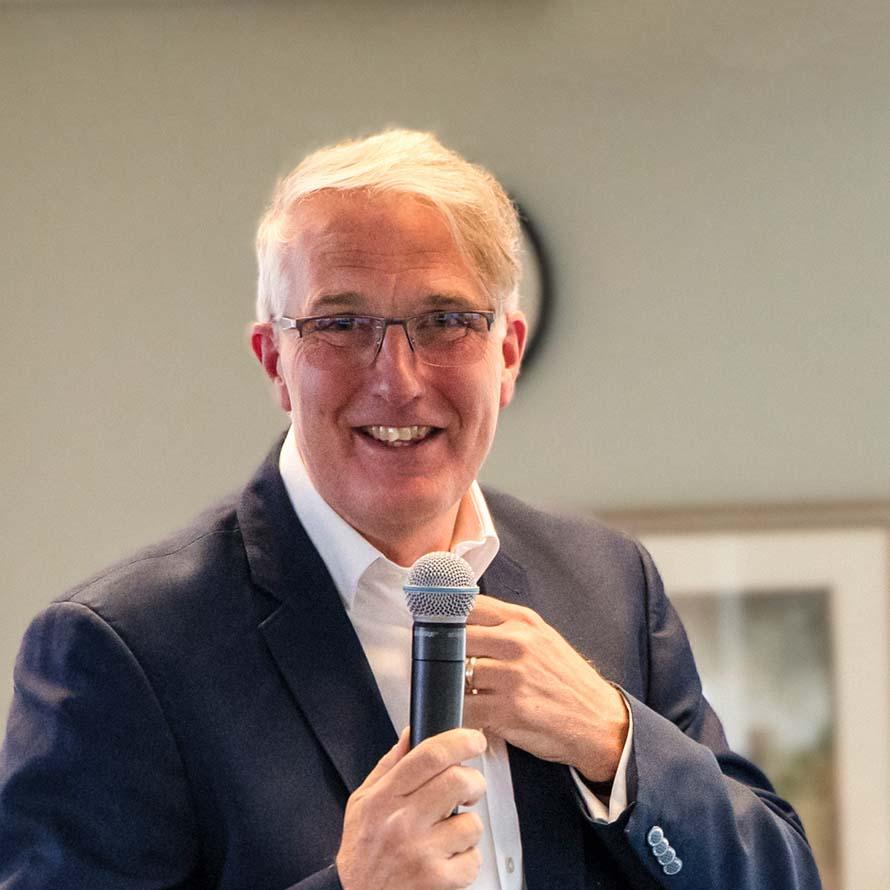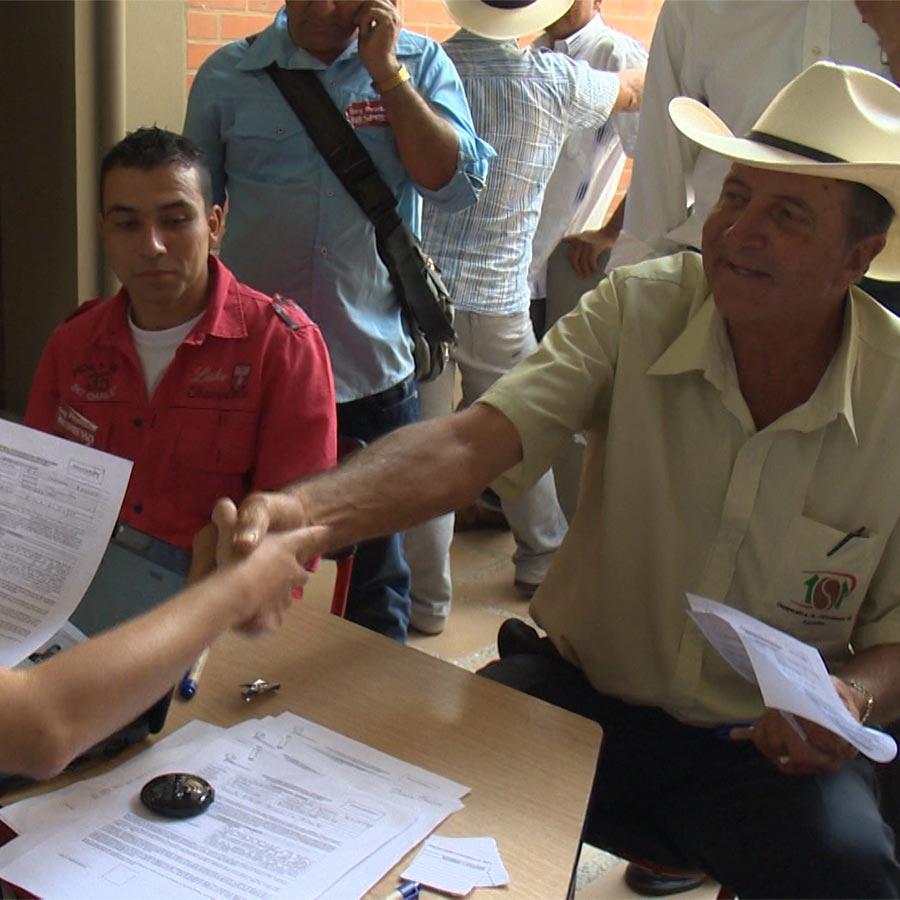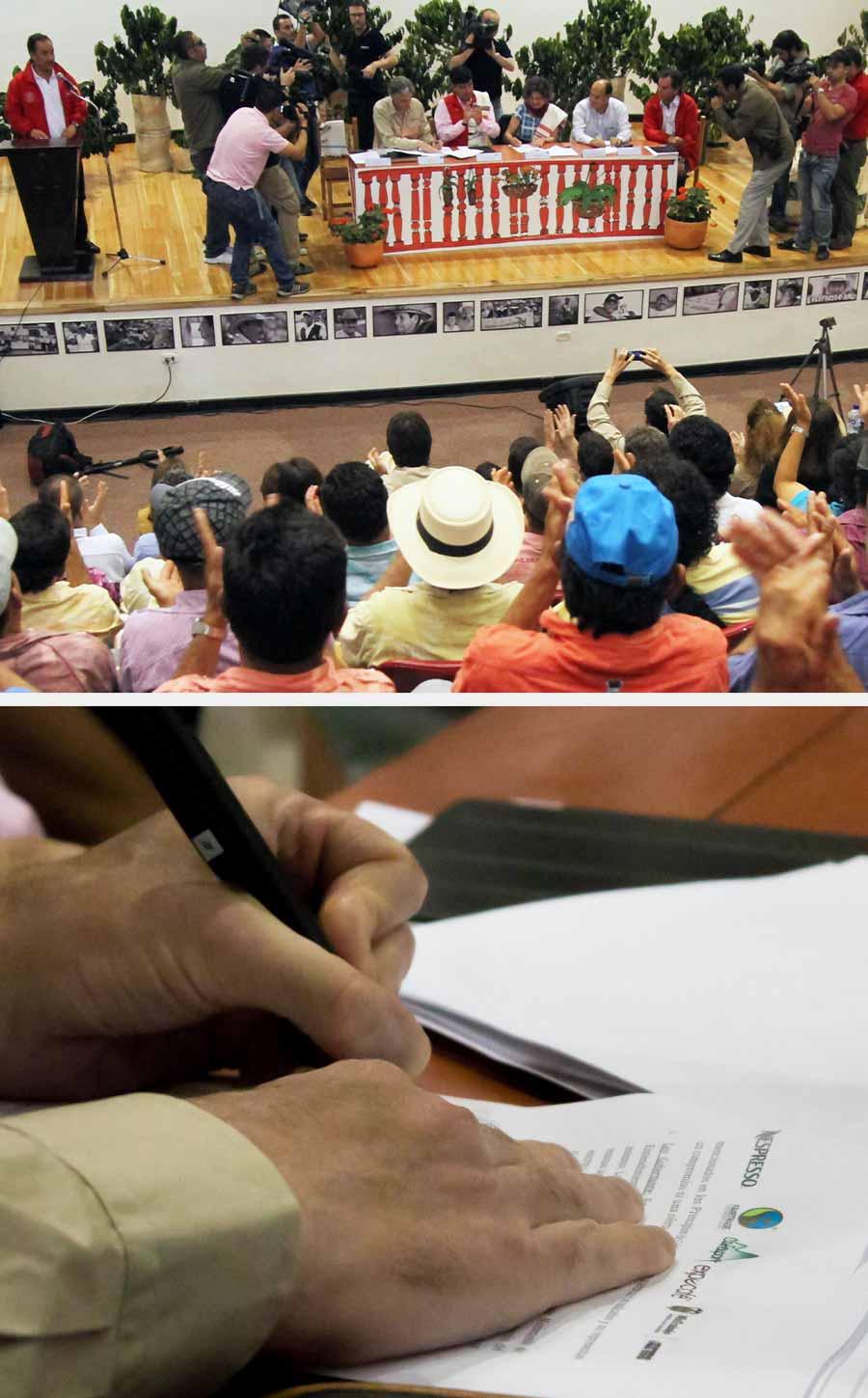
Authored by
DEAN SANDERS
Chairman,
GoodBrand
CREATING SHARED VALUE
In their 2011 Harvard Business Review article, Mark Kramer and Michael Porter cited Nespresso’s coffee sourcing program as a way of doing business that integrated enterprise value and social impact. Unlike corporate responsibility and sustainability they argued, the notion of Creating Shared Value (or CSV) made sense as a lasting way to do business – integrating the needs of different stakeholder groups along the value chain with the aim of delivering value to all of them.
The Nespresso AAA Sustainable Quality™ Program provided the practical illustration of this. By investing in the resilience and sustainability of coffee farming communities, Nespresso was seeking to ensure the ongoing supply of high-quality coffee for its business. This approach made business sense and delivered positive impacts in coffee producing regions.
The strategy has clearly paid off. The continuing supply of high-quality, sustainable coffee has been accompanied by ever increasing numbers of Nespresso consumers and years of growth. At the same time the global supply of these high-quality coffees has been squeezed by the twin forces of economic volatility and climate change.
INNOVATING FOR SHARED VALUE
But beyond this common-sense approach to stabilising a risky supply chain, Nespresso is pushing the boundaries of CSV further, to what we might call, ‘Innovating for Shared Value’. This approach identifies broader systemic failures that affect business and addresses them through a joint commitment involving multiple stakeholders representing public, private, academic, financial and civil society sectors. Together, these stakeholders create new models designed to unblock the obstacles to sustainable growth and prosperity.
A number of examples of this approach can already be seen whereby public-private partnerships are leveraging the resources and expertise of multiple actors.
THE FARMER FUTURE PROGRAM
In the high-altitude coffee lands of Caldas, Colombia, a number of communities are experiencing the way in which Nespresso has been translating the notion of Innovating for Shared Value into practice.
Farmers are benefitting from a range of pilot projects as part of the AAA Farmer Future Program. This project platform has identified significant failures and risks in smallholder coffee supply chains and worked with stakeholders to analyse the issues more deeply and to design radical solutions that address them. In some cases, the issue relates to a specific dysfunctionality in the market, in others to a lack of imagination and a determination to alter an unsatisfactory status quo.


The first retirement savings scheme for smallholders
In 2010 Marino Loaiza, a Nespresso AAA farmer of more than 10 years, made his first ever payment into a pension plan. Smallholder farmers never had the means to stop working and retire with dignity and this had a broader knock-on effect. Not only did it lead to an increasingly aging profile of coffee farmers but also to an increasing number of younger people rejecting coffee farming as an option for their own future.
The first retirement savings scheme for smallholders is transforming this dynamic.
A collaboration between Fairtrade International, the Colombian Ministry of Labour, Cafexport and the Aguadas Coffee Growers Cooperative, it is providing the means for farmers to save for retirement while creating an environment whereby the generational transfer of farms from parent to children is more likely. In fact, Marino recently won an award from Nespresso in recognition of his work encouraging the next generation into coffee farming.
The retirement savings scheme is enjoying success and has expanded into the three other cooperatives in the AAA Program and even beyond AAA communities to gain momentum in coffee cooperatives across the country.
Dario Soto, CEO, Fairtrade“Nespresso recognizes that a healthy sustainable supply of coffee in the future is dependent on smart partnerships and dedicated investments in coffee communities. The pension fund for farmers developed in Colombia since 2013 is an example of the way Nespresso and Fairtrade successfully collaborate.”
Addressing climate risk with micro crop insurance
Close by, in Vereda Tamboral at Finca El Vergel, Maria Alba Londoño has gained considerable peace of mind from a major breakthrough in crop insurance for coffee farmers increasingly at risk from adverse weather patterns brought about by climate change.
Maria says, “the rain harms the coffee the most because we live in a rather high-altitude zone. The rain diminishes the flowering of the coffee. So, when we experience lots of rain, there is less coffee to harvest, less resources for fertilization and for the house and family needs.”
Historically the cost of damage assessment by insurance companies was prohibitive, making insurance unaffordable for smallholders. But with the support of the International Research Institute for Climate and Society at The Earth Institute of Columbia University in New York and AgriLogic, a supplier of risk analysis products and services to the agricultural, financial, and insurance industries, Nespresso has been exploring satellite-indexed damage assessments used in other regions and sectors.
A strategic partnership between Nespresso and a consortium of insurance providers called Blue Marble is now in operation. Blue Marble has already successfully provided insurance to corn farmers in Zimbabwe and their new micro-insurance technology is now being offered to low income smallholders in Colombia.
This innovative approach to crop insurance is being piloted with the help of Cafexport among around 4,700 farmers and spanning 15,000 hectares within the Aguadas and Norte de Caldas cooperatives in Caldas, Colombia.
TEN STEPS TO INNOVATING FOR SHARED VALUE
1. Identify the barrier to sustainable growth
2. Isolate the precise nature of the barrier
3. Include all stakeholders who are impacted by the issue
4. Inform the project with relevant cases beyond the category
5. Ideate potential solutions
6. Incubate at pilot scale to road-test and learn
7. Impact assess to verify effectiveness
8. Integrate into a broader systemic solution
9. Invest to scale
10. Impart to share results, knowledge and best practice
MAJOR CHALLENGES STILL EXIST
Many challenges still remain in the coffee sector. The most pressing is the volatility of coffee prices and currency exchange rates that disproportionately and adversely impact smallholders. When the international coffee price falls dramatically as it did during 2018, partly due to non-commercial speculators trading coffee without any actual interest in the coffee industry, farmers often receive less than their costs of production. This situation is not viable or acceptable and puts all of the work in sustainable coffee production at risk. The coffee industry as a whole needs to find pre-competitive solutions and mechanisms that can smooth the peaks and troughs of pricing. This is critical if it is to meet the industry’s ambition to be the first fully sustainable, global agricultural commodity.
IMAGINING A BETTER VALUE CHAIN… AND BUILDING IT
It is clear that the multiple environmental and social challenges that affect a wide array of industry sectors and businesses, preventing inclusive growth within the boundaries of planetary resources, can only be addressed by imaginative solutions. These new models will draw on the vast experience of experts from the sectors in question but also from experiences gained in other areas. In the AAA Farmer Future Program, for example, new models have been designed and built by accessing schemes that were either already present in the public sector or by cross-fertilisation from other agricultural sectors.
In every case, success depends on the willingness of partners to think differently and explore new possibilities together. Innovating for Shared Value requires deep collaboration and broad imagination. It will be the key to unlocking the new solutions required and in helping the coffee sector fulfill its potential in contributing to the achievement of the relevant UN Global Goals and its stated ambition to be the first fully sustainable global agricultural commodity.

Article published in: January 2019

